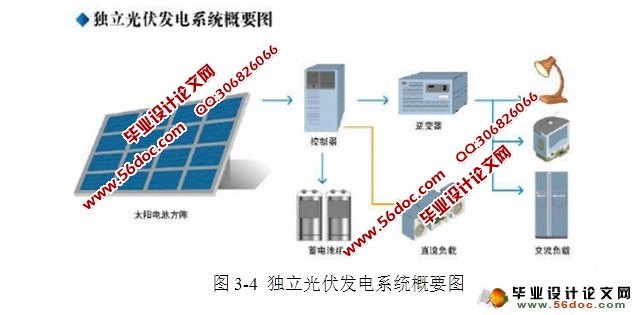光伏建筑一体化(太阳能发电)的研究(任务书,开题报告,论文13000字)
摘 要
随着新世纪的发展,煤、碳、石油等不可再生资源已经无法满足人类发展所需,且这些资源的使用还会导致环境的污染,虽然我们找到一些清洁的能源来代替,比如说天然气,但不管是煤、碳、石油等不可再生资源,还是我们用处很广的天然气等等清洁环保无污染的能源,所有的这些能源都会有被用完的一天。所以,在当下,无论是为了未来的能源供应还是出于对环保方面的考虑,我们可以多多的鼓励人们去选择使用可再生的能源,逐步的增加可再生能源的消费比重。在这里,太阳能光伏发电的技术的出现,发展还有应用受到越来越多的人的关注。本篇论文主要是从太阳能发电的未来的前景、发电的重要性等等的方面开始介绍的,本篇论文主要向大家介绍了各种各样的太阳能发电的优点,还有就是太阳能是怎样发电的。同时对于BIPV进行一定的了解,比如说BIPV的运行方式,发展近况、发展前景、有怎样的国家支持等。
关键词:太阳能;发电方式;BIPV
Abstract
With the development of the new century, the non-renewable resources such as coal, carbon, oil has been unable to meet the required for human development, and the use of these resources can also lead to environmental pollution, although we find some clean energy instead of, such as natural gas, but neither non-renewable resources such as coal, carbon, oil, or natural gas and other clean energy, there is always be used up one day. So out of respect for environmental protection and future energy supply, can be in the proportion of raw energy in the world energy consumption increased gradually. Among them, the solar photovoltaic power generation technology development and application of the people all around the world are in print. This article provides an overview of the current global energy situation, show the importance and the prospect of solar power, the form of solar power generation was introduced in detail and their advantages, and the parameters of the generating ways. At the same time for BIPV, such as BIPV operation mode, the development, development prospects, such as how to state support.
Key words: solar energy; Power generation; BIPV

目录
摘要
Abstract
第1章 前言…………………………………………………………..……………… 1
第2章 太阳能发电的发展现状及趋势…………………………………..………… 2
2.1 太阳能发电的基本介绍………………………………………….…………… 2
2.2 太阳能发电发展的现状及趋势…………………………….………………… 2
第3章 太阳能发电的类型……………………..………....………...…………….… 3
3.1 太阳能热发电………………………………………………..………. …….….. 3
3.1.1 塔式太阳能热发电系统……………………………………..………….... 3
3.1.2 槽式太阳能热发电系统……………………………………..………….... 4
3.1.3 碟式太阳能热发电系统……………………………………..………….... 4
3.2 太阳能光发电……………………..……….………………………………….. 5
3.2.1 独立光伏发电…………………………..……….………………………... 5
3.2.2 并网光伏发电…………………………..……….………………………... 6
3.2.3 分布式光伏发电………………………………..……….………………... 6
第4章 BIPV的发展现状及趋势………………..…………………………………... 8
4.1 BIPV的概述……………………………………..……………………………. 8
4.1.1 BIPV形式及运用场合…………………………………………………… 8
4.1.2 BIPV的优点………………………………………………….…………... 9
4.2 BIPV的发展现状趋势……………………………………………….……….11
4.3 BIPV的基本要求 …………………………………………………………..12
4.3.1 光伏组件的力学性能…………………………………………………….12
4.3.2 电池和电池组件的技术要求…………………………………………….12
4.3.3 建筑的美学要求 ………………………………………………………...12
4.3.4 建筑结构与光伏组件电学性能的配合………………………………….13
4.3.5 建筑隔热、隔声要求 …………………………………………………...13
4.3.6 建筑对光伏组件采光的要求 …………………………………………...13
4.3.7 组件要方便安装与维护 ………………………………………………...13
4.3.8 光伏组件对通风的要求 ………………………………………………...13
4.4 BIPV的设计原则……………………………………………………………..14
4.5 BIPV存在的问题……………………………………………………………..14
4.6 BIPV的发展趋势……………………………………………………………..15
第5章 结束语……………………………………………………………………….16
参考文献
答谢辞
|



